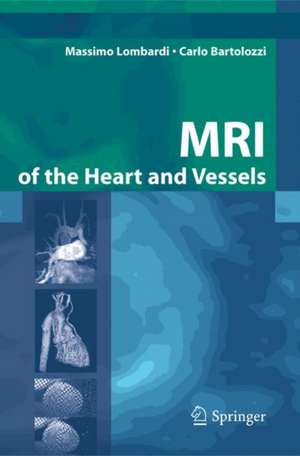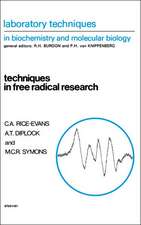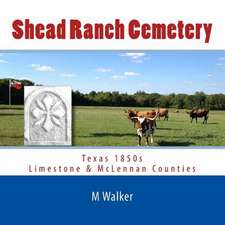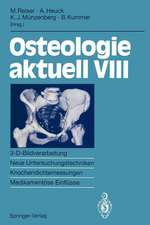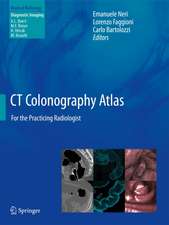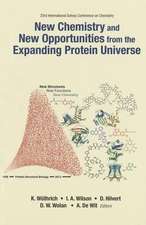MRI of the Heart and Vessels
Autor Massimo Lombardi Cuvânt înainte de L. Donato Traducere de M. Walker Autor Carlo Bartolozzien Limba Engleză Hardback – 13 apr 2005
The use of non-ionizing energy with the consequent absence of an environmental impact and of operator and patient biohazards makes MRI a winning technique when evaluating the risk – benefit ratio in comparison to other imaging methods.
In virtue of its added diagnostic value and inherent refinements that allow construction of two- and three-dimensional images, MRI is gaining a primary role in the histopathological and physiopathological understanding of a large number of pathologies concerning the heart and vessels.
This text is addressed both to MRI operators seeking specific technical information and to clinicians who wish to have a better understanding of the diagnostic and management advantages that MRI can offer.
| Toate formatele și edițiile | Preț | Express |
|---|---|---|
| Paperback (1) | 1101.00 lei 6-8 săpt. | |
| Springer – 28 noi 2014 | 1101.00 lei 6-8 săpt. | |
| Hardback (1) | 735.83 lei 6-8 săpt. | |
| Springer – 13 apr 2005 | 735.83 lei 6-8 săpt. |
Preț: 735.83 lei
Preț vechi: 774.55 lei
-5% Nou
Puncte Express: 1104
Preț estimativ în valută:
140.82€ • 146.47$ • 116.25£
140.82€ • 146.47$ • 116.25£
Carte tipărită la comandă
Livrare economică 15-29 aprilie
Preluare comenzi: 021 569.72.76
Specificații
ISBN-13: 9788847003064
ISBN-10: 8847003067
Pagini: 420
Ilustrații: XXIV, 394 p.
Dimensiuni: 155 x 235 x 28 mm
Greutate: 0.92 kg
Ediția:2005
Editura: Springer
Colecția Springer
Locul publicării:Milano, Italy
ISBN-10: 8847003067
Pagini: 420
Ilustrații: XXIV, 394 p.
Dimensiuni: 155 x 235 x 28 mm
Greutate: 0.92 kg
Ediția:2005
Editura: Springer
Colecția Springer
Locul publicării:Milano, Italy
Public țintă
Professional/practitionerCuprins
Physical principles of imaging with magnetic resonance.- Techniques of fast MR imaging for studying the cardiovascular system.- Post-processing.- Contrast agents in cardiovascular magnetic resonance.- Intracranial vascular district.- Vessels of the neck.- Heart.- Pericardium and mediastinum.- Thoracic aorta.- Renal arteries.- Abdominal aorta.- Peripheral arterial system.
Textul de pe ultima copertă
In recent years magnetic resonance imaging (MRI) has enriched the technological potential available for the characterization of cardiovascular pathologies, adding substantial advantages to other non-invasive techniques. This technique, which is intrinsically digital and has reduced operator dependency, allows the performance of image analysis in a quantitative and reproducible manner.
The use of non-ionizing energy with the consequent absence of an environmental impact and of operator and patient biohazards makes MRI a winning technique when evaluating the risk – benefit ratio in comparison to other imaging methods.
In virtue of its added diagnostic value and inherent refinements that allow construction of two- and three-dimensional images, MRI is gaining a primary role in the histopathological and physiopathological understanding of a large number of pathologies concerning the heart and vessels.
This text is addressed both to MRI operators seeking specific technical information and to clinicians who wish to have a better understanding of the diagnostic and management advantages that MRI can offer.
The use of non-ionizing energy with the consequent absence of an environmental impact and of operator and patient biohazards makes MRI a winning technique when evaluating the risk – benefit ratio in comparison to other imaging methods.
In virtue of its added diagnostic value and inherent refinements that allow construction of two- and three-dimensional images, MRI is gaining a primary role in the histopathological and physiopathological understanding of a large number of pathologies concerning the heart and vessels.
This text is addressed both to MRI operators seeking specific technical information and to clinicians who wish to have a better understanding of the diagnostic and management advantages that MRI can offer.
